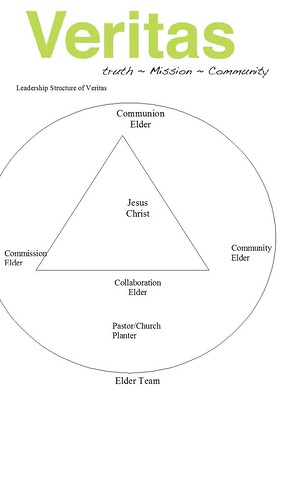
A few weeks ago I got an e-mail from Mike Morrell, who runs the Speak Easy blog program that I am a part of. This e-mail was letting me know that Speak Easy had a book that I could review. The book? Sacrilege: Finding Life in the Unorthodox Ways of Jesus by Hugh Halter. As soon as I read the e-mail I went right to the form and filled it out hoping that I wasn’t too late. I hit submit, held my breath, and waited for the confirmation that I indeed got a copy to review for Speak Easy. Seconds later I received that confirmation that i was hoping for, a chance to read the newest book by Hugh.
You see Hugh and his normal writing and ministry partner Matt Smay have influenced me in profound ways in their books The Tangible Kingdom and AND:The Gathered and Scattered Church. And Veritas has used their Tangible Kingdom Primer in developing missional communities (and plan to do so again in the coming year). So I was excited to see what Hugh had to say about following Jesus. And of course the title Sacrilege, which normally is seen as a bad thing in Christian circles, grabbed my attention right away.
The first thing that Halter does in the book’s first chapter is to define what he means by the word sacrilege. He says, “To commit sacrilege is to de-sacredize what is deemed to be sacred….In the Christian sense, to commit sacrilege means to disregard, disrespect, or be irreverent toward those things that have traditionally been considered holy, venerated, or dedicated as sacred. It’s tipping holy cows†At first reading how can sacrilege be a good thing, according to Halter. Just about the time when you are wondering if Halter is trying to just be controversial or provocative, we says this, which sums up what the book is all about, “In actuality, as I’ll show, de-sacredizing what should be de-sacredized is not only good, it begins to move us toward the undercurrent of the real person and Good News of Jesus. Sacrilege is about removing religion from our faith. It’s about securing the integrity of what is most important. It’s about chipping away at people’s false assumptions about who Jesus is and what following him is all about.â€
As an Anabaptist I was totally on board where Halter went to show his readers the sacrilegious nature of Jesus, right to the Sermon on the Mount, and more specifically the beatitudes. Halter takes the remainder of the book unpacking the beatitudes and how they flip everything upside down and how following Jesus and living out the beatitudes will fulfill what Jesus wants of his disciples (or apprentices as Halter wants to call those who live for Jesus). Halter says that Jesus, “wanted people to become like him; sacrilegious, incarnational people who lived a contagiously countercultural, kingdom-centered life. (I believe Jesus wanted that when he walked the face of this earth and he also wants that now as well.)
I appreciated the book and what Halter was seeking to do, unpacking Jesus from the religious confines that He has been wrapped up in for 2,000 years and to truly see Jesus as “the ultimate sacrilegious leader.†I resonated with his use of the beatitudes to show the sacrilegious nature of Jesus and how if we follow Jesus, by living out the beatitudes, we’ll be committing sacrilege as well and becoming sacrilegious apprentices.
Here are some quotes from the book that I found helpful or that resonated with me:
“Jesus and the early faith communities lived an intentionally countercultural life without any sense of consumer-oriented fluff- and people still chose to take the leap!†(This is my desire for not only Veritas but for my life as well)
“Biblical apprenticeship is about three things: 1. Becoming just like Jesus. 2. Doing what Jesus did, and 3. doing the above with the types of people Jesus liked spending time with.â€
“Jesus messed with people’s paradigms.â€
“Jesus utterly jacked up everything people thought about religion and God. And he’s still at it.â€
“Jesus loved the Scriptures as they witnessed to him, but his biggest fights were with those who knew the most Scripture.â€
“Jesus really doesn’t care how much we know if our knowledge amounts to no change in our lifestyle.â€
“Jesus, however, is trying to take people from a small box of religion to the place where they can open up their lives to a huge new world called the kingdom.â€
“Although Westernized Christianity pulls us away from risk, confrontation, and getting gritty with real issues, Christ is going to lead us into places that will capture our emotions and reorient our entire perspective about life and why we live it.â€
“Being a Christian is about being like Jesus, and sometimes that means taking risks to reach out.â€
“Jesus came to expand your life, not keep it the same. His life is fuller than the American Dream, but it’s not as safe.â€
“The wall of assumptions will only come down as entire communities band together in unity to live like Christ before the world. This may mean turning from idols of materialism, individualism, consumerism, and religion.â€
I’m sure I could go on with various thoughts and quotes that stuck out to me and resonated with me and our journey in planting Veritas as a missional community. But I thought I’d end this blog with a final thought from Hugh that is a deep hope and longing of mine for our community. Hugh says, “Jesus never called people to follow him by themselves. He knew that life in the Kingdom was and still is only available for those committed to community with other apprentices.â€
I’m thankful for Mike Morrell and Speak Easy for the opportunity to read and review Sacrilege. Hopefully reading this book can help and remind me to flip some tables and follow the subversive, countercultural, and sacrilegious leader Jesus of Nazareth.


